MercoPress. South Atlantic News Agency
Fisheries
-
Thursday, May 6th 2010 - 00:20 UTC
Greenpeace Condemns Spain's Fishing “Armada” for Plundering World Oceans

Spain's fishing fleet, Europe's largest, is using massive European Union (EU) subsidies to “plunder” the oceans of the world, environmental group Greenpeace charged this week.
-
Tuesday, May 4th 2010 - 04:15 UTC
Seafood Prices May Rocket Due to Louisiana Oil Slick; Ten Day Fishing Ban In
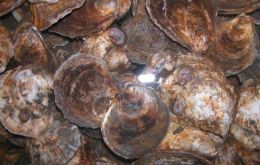
United States officials have announced a ban on fishing for at least ten days in waters off Louisiana spanning to parts of the Florida panhandle as the oil slick from a leak spreads across the Gulf of Mexico. Rough weather conditions are complicating crews’ efforts to contain the oil slick.
-
Monday, May 3rd 2010 - 03:22 UTC
Benchmark Fishing Treaty Needs Nine More Ratifications to Become Active

Five more nations have signed the FAO-brokered treaty that once it enters into force will deny access to fishing ports to ships involved in illegal fishing. The new signatories include: Australia (27/04/2010), Gabon (26/04/2010), Peru (3/03/2010), New Zealand (15/12/2009) and the Russian Federation (29/04/2010).
-
Saturday, May 1st 2010 - 02:20 UTC
Japan Issues Arrest Warrant for Head of Anti-Whaling Sea Shepherd
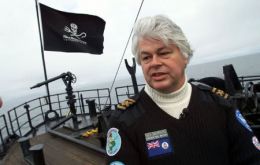
Japan’s Coast Guard has obtained an arrest warrant for the head of the Sea Shepherd Conservation Society, accusing him of ordering members of the protest group to obstruct the Japanese whaling fleet, investigative sources said Friday.
-
Saturday, May 1st 2010 - 00:59 UTC
Iceland Displeased with Whale Hunting Quota Threatens to Pull Out of IWC

Twelve member countries of the International Whaling Commission (IWC)—an 88-country organization created in 1946 to monitor the whaling industry—have proposed catch quotas for the next ten years for countries that hunt whales.
-
Friday, April 30th 2010 - 03:04 UTC
Argentine Coast Guard Arrests Korean Jigger for Illegal Fishing
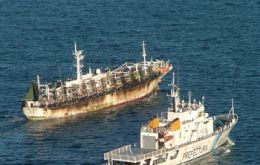
A Korean jigger was arrested this week in the South Atlantic by the Argentine Coast Guard allegedly for illegal fishing and a catch of 80 tons of squid was seized.
-
Thursday, April 29th 2010 - 18:59 UTC
Fish Meal Price Rockets Because of Chilean Earthquake Damage to Plants

The earthquake in Chile earlier this year destroyed Chilean processing plants tightening world supply of fishmeal and causing world market prices to hit an all-time high. Chile is the world’s second biggest exporter of fishmeal, second only to Peru.
-
Thursday, April 29th 2010 - 18:49 UTC
Australia Opens Brine Shrimp Farm, Key Component in Aquaculture Food Chain
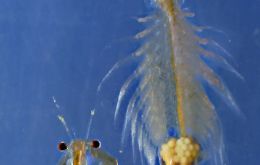
Australian Fisheries Minister Norman Moore embraced the aquaculture potential of Western Australia with the opening of a cutting edge-design commercial brine shrimp farm at Port Gregory, near Geraldton.
-
Wednesday, April 28th 2010 - 21:05 UTC
US Tests Farming Shovelnose Sturgeon for Caviar on a Soy-Based Diet

Ongoing effort to find new uses for soy-based products has kicked off at Southern Illinois University in Carbondale (US) for shovelnose sturgeon caviar production.
-
Wednesday, April 28th 2010 - 01:50 UTC
World Seafood Industry Employs 45 Million and 500 Million Live from Fish Income
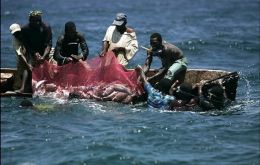
New regulations, such as retailers’ requirement that fish must be certified as sustainable, and the impact of the global economic crisis are affecting the seafood industry, especially producers in developing nations, according to the United Nations Food and Agriculture Organization FAO.
